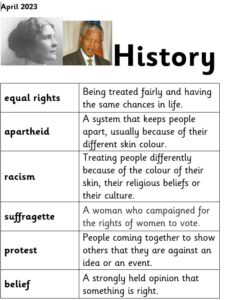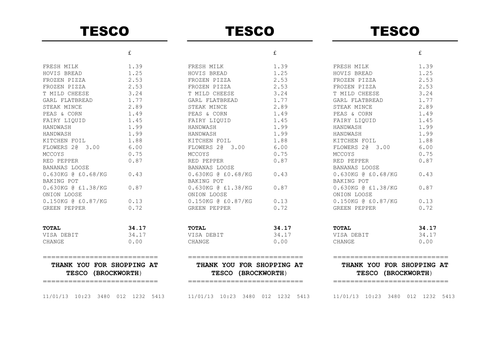‘Loidis Ledes Leeds’
Year 4 have begun a new class novel called ‘Loidis Ledes Leeds’ written by Tom Palmer. This five part story follows the adventures of three pupils across Leeds and across time.
Iron Age Romans Anglo Saxons Vikings Now
The characters travel through historical periods and uncover some VERY exciting facts about the city of Leeds. The historical finds can be visited today, if you fancy an afternoon out.
There are two ways to enjoy this story. These are via a PDF document and online. The children have really enjoyed listening to the author narrate the first few chapters.

https://tompalmer.co.uk/wp-content/uploads/2016/01/Leeds-story-2016-full.pdf
The first historical adventure ends in Barwick in Elmet, Leeds where the children discover the remains of a large Iron Age hillfort.
Help your child by sharing this story and read (or listen to ) the next chapter at home. Encourage your child to research each historical find and the period of history they originate from.
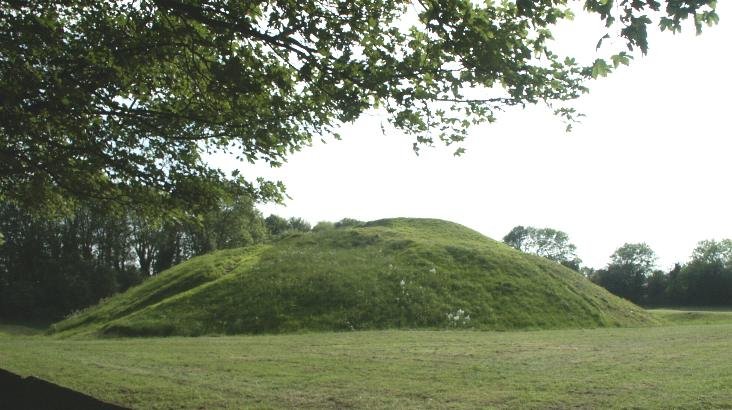
Library visit
Today, we walked to the library to have a welcome visit. We listened to a couple of stories and learnt about all the different types of books we can borrow from the library. Our five library ambassadors choose a book each to bring back to school for our reading area. Afterwards, we had some free time to explore and read some books and make our own door handle sign to use when we are reading so we aren’t disturbed.
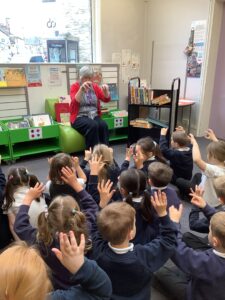
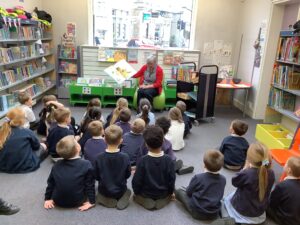
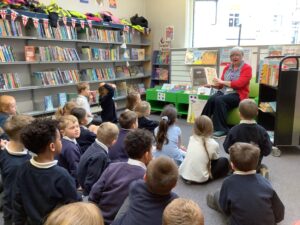
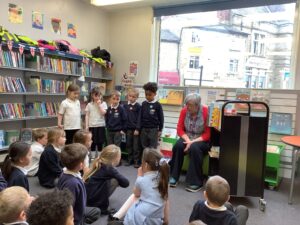
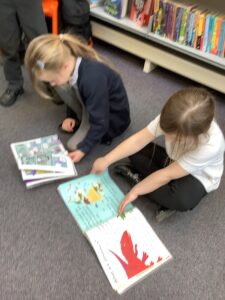
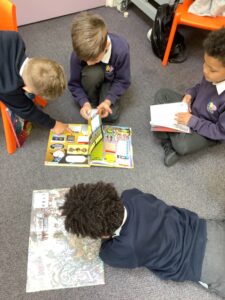
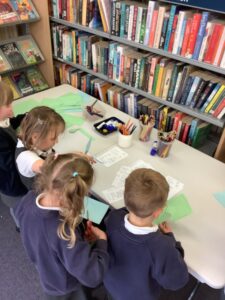
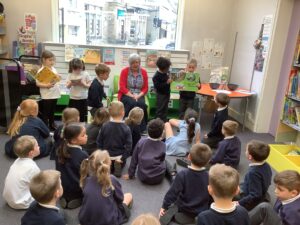
Living & Learning: I recognise the importance of sleep
This week in Living and Learning, we have been looking at the importance of sleep.
We thought about all the things we already knew about sleep. We wrote this on the board in red, blue, and green pens. We already knew that sleep was important for both our minds and our bodies. We later went back to this and added our new knowledge in pink.
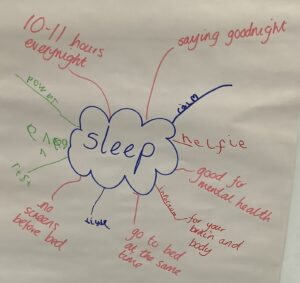
We heard about a little girl called Mia who struggled to go to sleep one night after a very busy day and rushing straight to bed. We talked about what was good to do before bed and what wasn’t. We sorted things into two piles.
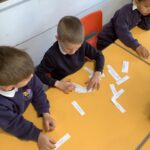
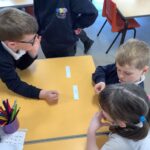
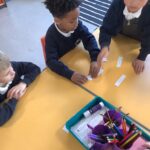
Later, we thought about our bedtime routines and planned a new bedtime routine for Mia. We decided that a super bedtime routine would possibly include:
- screen times going off an hour before bed
- going to bed at the same time each day
- brushing our teeth
- having a story
- staying goodnight to our family
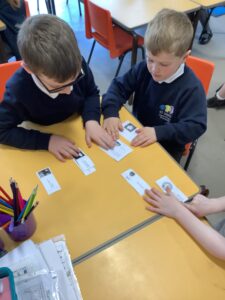
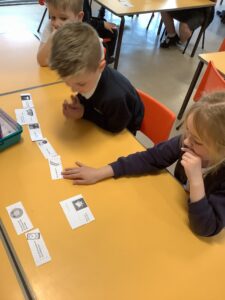
Help at home
Talk to your child about what they find most helpful during their bedtime routine. See if they would like to include something new, if they need it, in their bedtime routine to help them get to sleep.
Living and Learning: I know the importance of sleep
This week, in Living and Learning, we’ve been thinking about how a good night of sleep can help us to be healthy.
We know that we need to get between 9 and 12 hours of sleep each night so that our bodies feel well rested! We talked about what helps us get to sleep: listening to relaxing music, having a cuddle with a teddy or reading a bed-time story instead of watching TV.
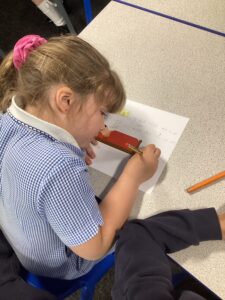

Here is our poem of the week, Bedtime by Eleanor Farjeon.
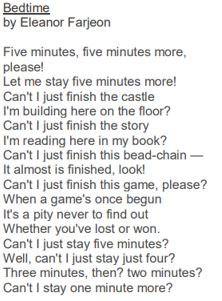
We talked about who the author of this poem might be talking to – we think that they are talking to an adult who has told them to go to bed! We also think that the child doesn’t want to go to bed.
“If they go to bed now then they will feel well-rested.”
“They don’t want to go to bed because they are asking lots of questions.”
“If they go to sleep now then they will be healthy tomorrow and be able to do their activities again.”
Writing money as decimals
Year 4 have been learning how to write a given amount of money in decimal notation. The children explored the use of pounds and pence notation and this helped to develop their understanding that the digits following the decimal point represent part of a pound.
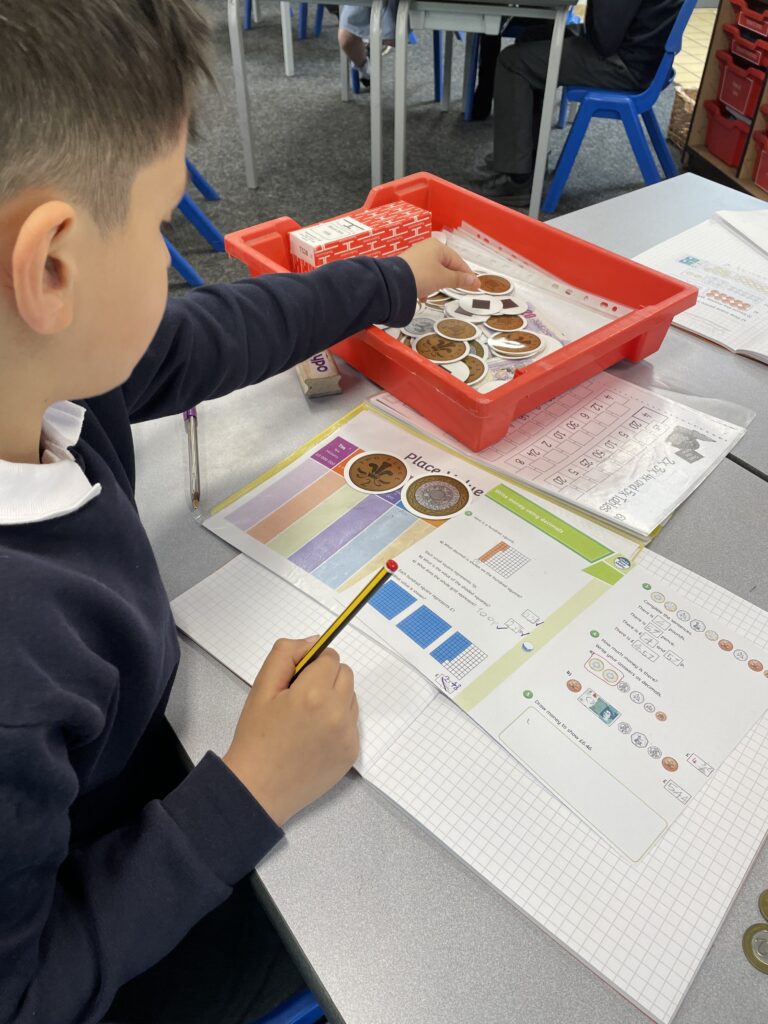
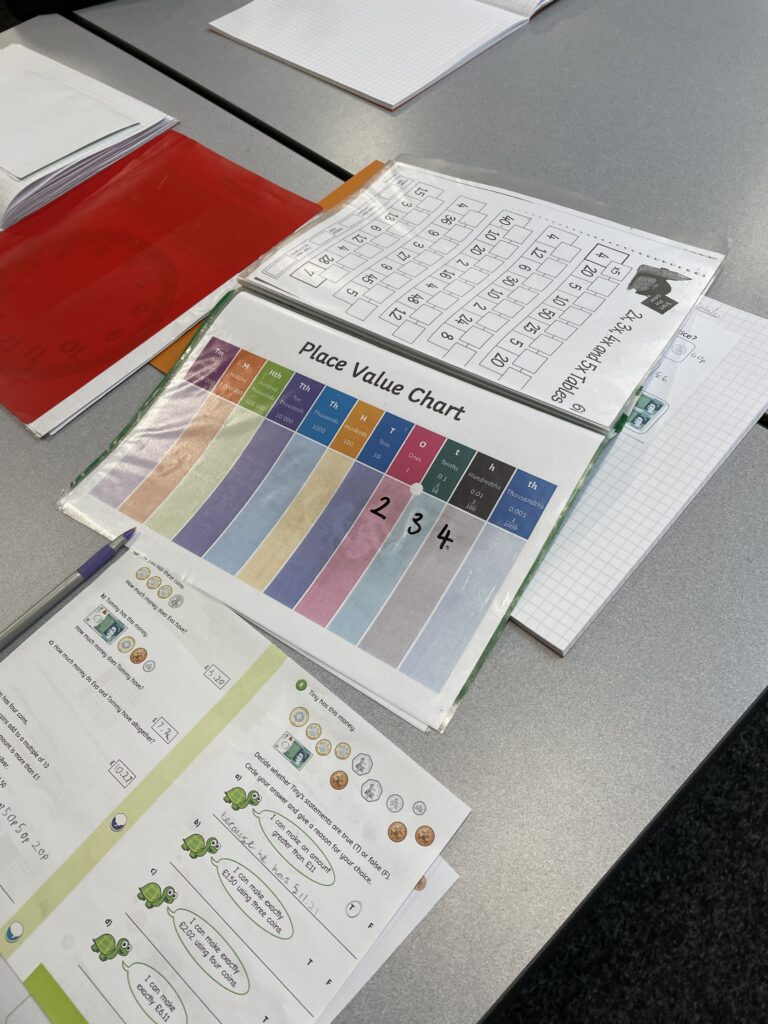 Help at home
Help at home
Next time you go shopping keep the till receipt or use the ones below.
Ask your child some of the following questions.
- Which is the most expensive item?
- Convert £1.99 into pence.
- How would you write 13p as a decimal?
- Which item has the most tenths?
- What is the total cost for two pizzas?
- Which item has no tenths and no hundredths?
- How many pounds and pence in 474p?
Summer Term 1 – Week 1 The Bad Tempered Ladybird
Welcome back!
We hope you all had a wonderful Easter break and enjoyed the sunny weather! This term our topic focuses on ‘Life on Earth’. Our focus story is all about a ladybird who isn’t very happy but realises that it is much better to share than fight with our friends.
We have enjoyed lots of outdoor learning this week. We had a walk around school to see which mini beasts we could find. We talked about the different places we might find them. We were very excited when we reached the pond area to find lots of tadpoles in there.
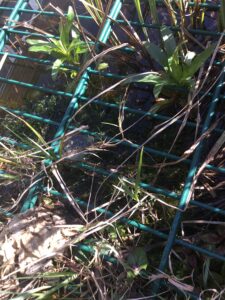
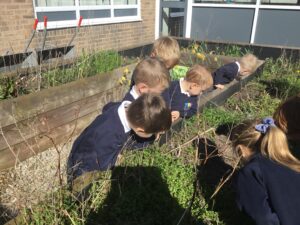
We thought about different places bugs might like to live and if they ever go on holiday? We decided to create some bug hotels! We were very excited when Mr Atkins gave us a demonstration on how to safely use hand drills and screwdrivers to create our own bug hotel for outside.
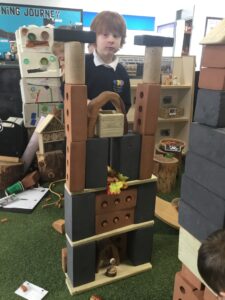
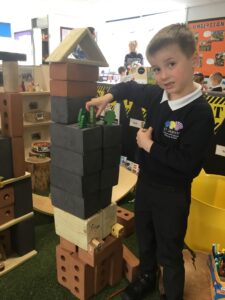
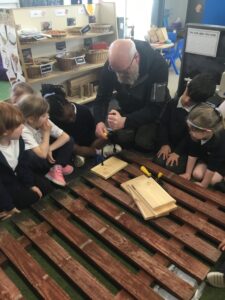
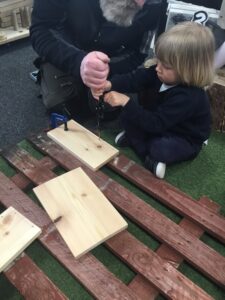
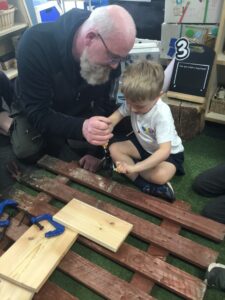
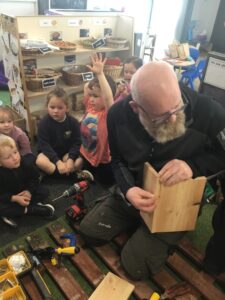
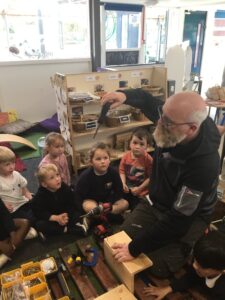
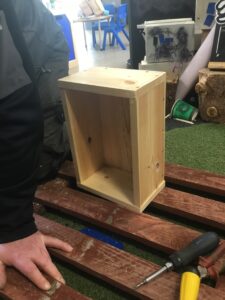
We have been exploring different materials to create some models. We really enjoyed using clay and exploring different ways to create joins.
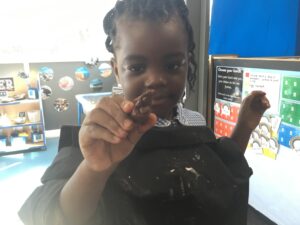
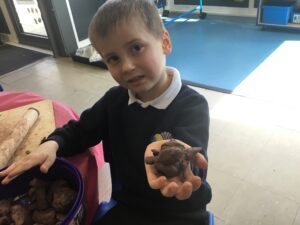
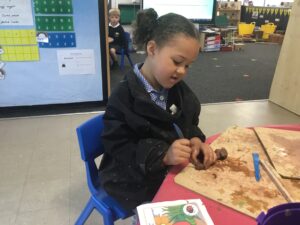
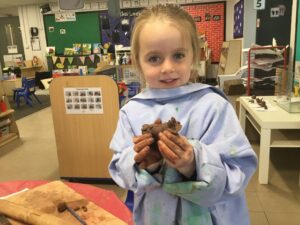
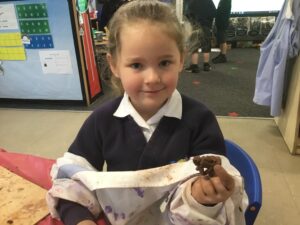
I bet you have all been wondering how our grass heads are doing. Well over the holidays they all grew hair! It was so exciting to come into class and see our new friends. We decided that they needed a visit to the salon and practised our scissor cutting skills by giving them a hair cut!
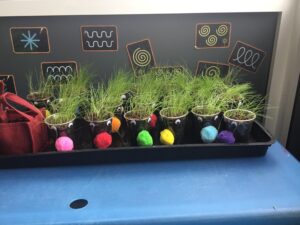
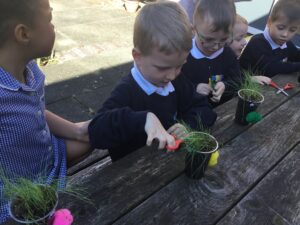
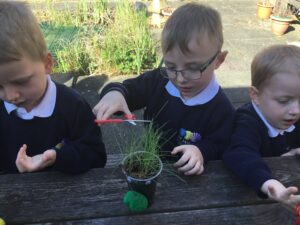
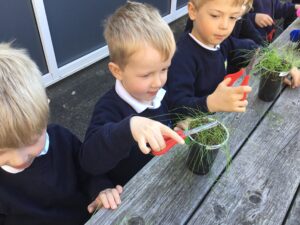
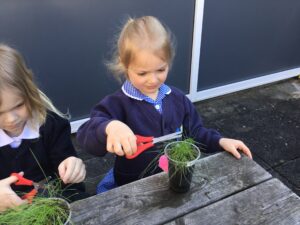
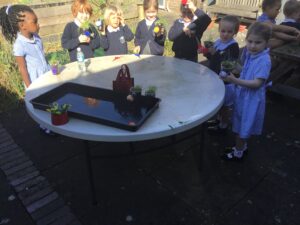
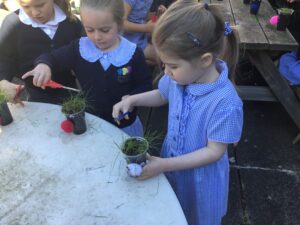
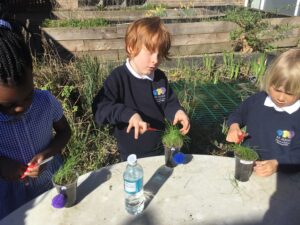
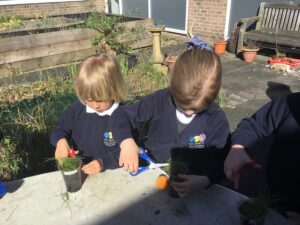
Our poem this week was called ‘pitter patter’. We hope you like it.
History: What is a carnival?
We’ve kicked off this topic’s learning in fine style! This history driven topic will explore carnivals from around the world but also closer to home – The Leeds West Indian Carnival.
Why not search online about carnivals – we looked at carnivals in Rio de Janeiro, Venice and Leeds. Quiz your child on what things make up a great carnival!
Be sure to chat to your child about the key vocabulary we’ll be using throughout…
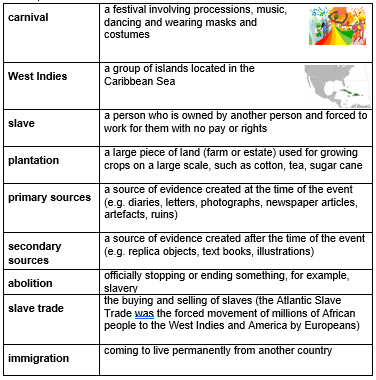
But he was still hungry!
Welcome back Nursery! We hope you had a lovely break over the Easter half term.
This week we introduced our new topic ‘ wheels, wings and other things’. Our first focus book was ‘The very hungry Caterpillar’ by Eric Carle.
Here is what we got up to …

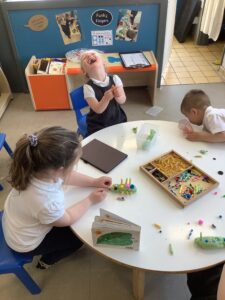
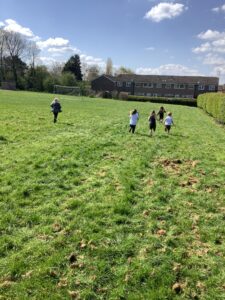
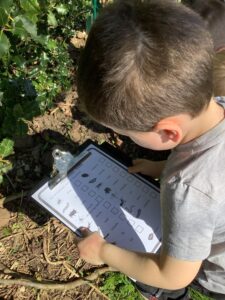
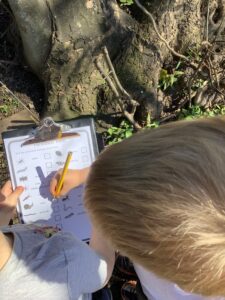

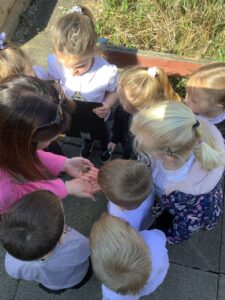
We created our own caterpillars using loose parts and play dough. We took the children down to the big playing field to start our minibeast hunt, the children ticked off the minibeasts they found along the way. We also went to check out school pond to see if there were any tadpoles- safe to say we will be seeing lots of frogs very soon!
The Caterpillar goes into a cocoon and then comes out as a Butterfly – Gracie
It gets really hungry, it’s going to eat 5 oranges next- Joshua
Look Miss Harvey, there is a millipede here. It has lots of legs!-Deacon
1 apple, 2 pears, 3 plums, 4 strawberries and 5 oranges but he’s still hungry – Zubi
The butterfly is symmetrical because it’s the same on both sides- Austin
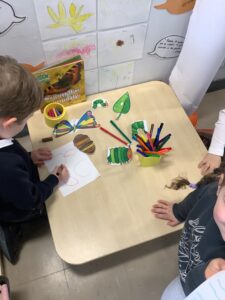
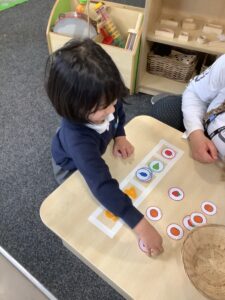
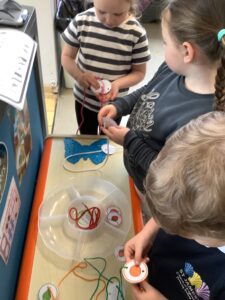


Notice
As the weather is starting to become warmer, please could you ensure your child/children bring a sun hat to school clearly labelled. We do have a sun hat box if you would like to leave it with us.
Have a lovely weekend everyone!
Miss Ward
Finding fractions!
This week, in Maths, we’ve been learning all about how to find fractions of amounts! We’ve been using our knowledge of division and sharing to help us.
We’ve been learning about halves (two equal parts), quarters (four equal parts) and thirds (three equal parts).
We thought about the amount being our whole. We found a fraction of our amount by sharing and dividing.



Help at home: find fractions in your food! For example, cut your pizza, toast or sandwiches into half (two equal parts) or into quarters (four equal parts)!
Topic
We have started out new history topic all about real life heroes. The first important person we’re learning about is Nelson Mandela. You can find more about him here. He believed that everyone should be treated the same. We will be learning about equality, apartheid and the suffragettes.
